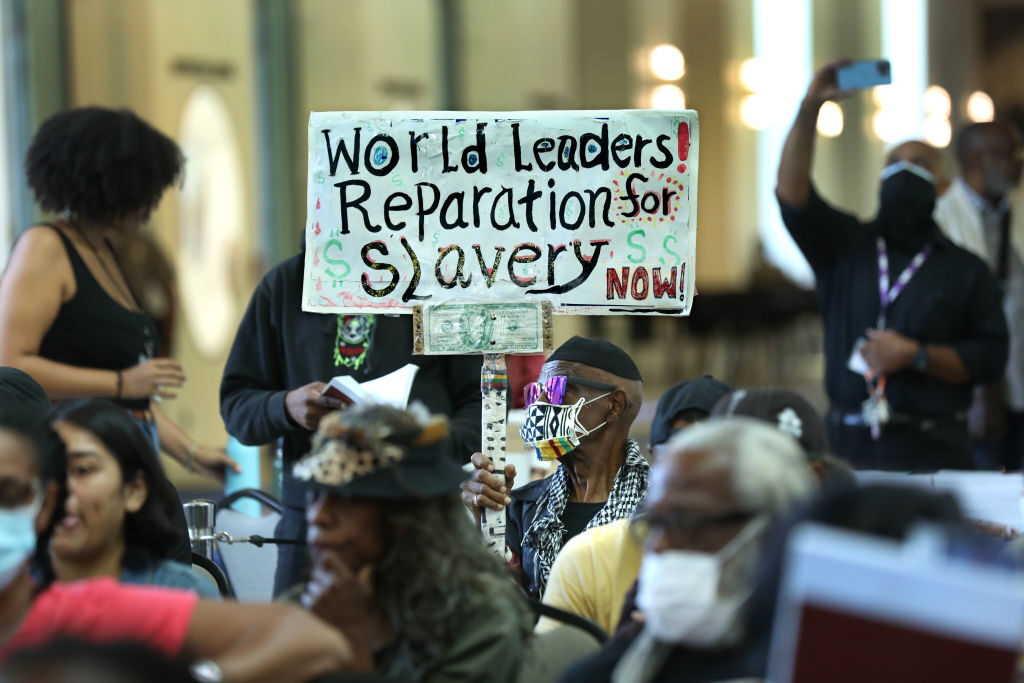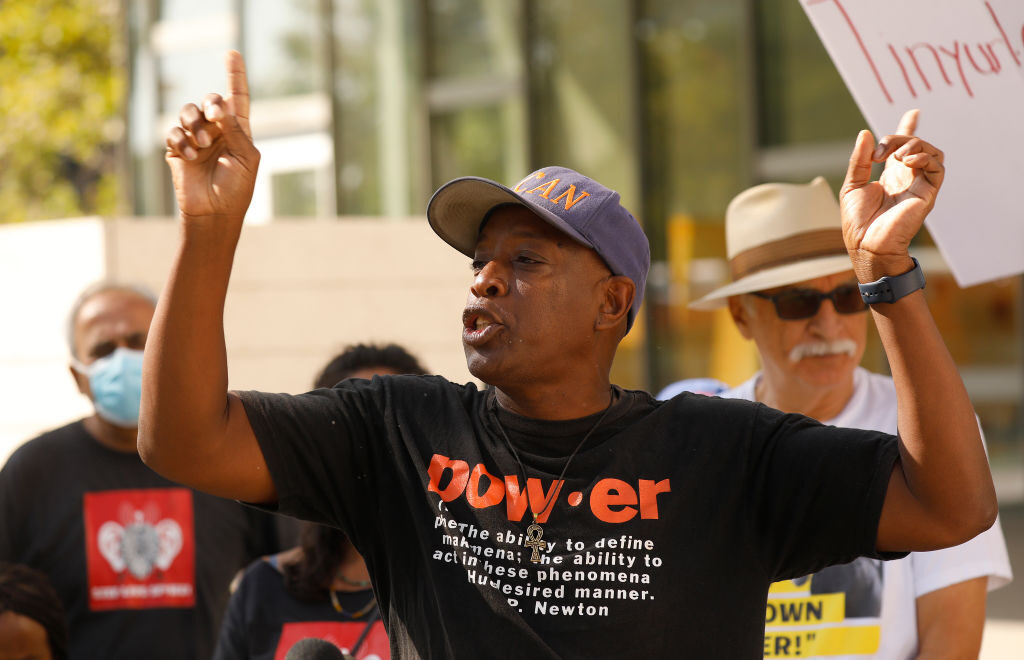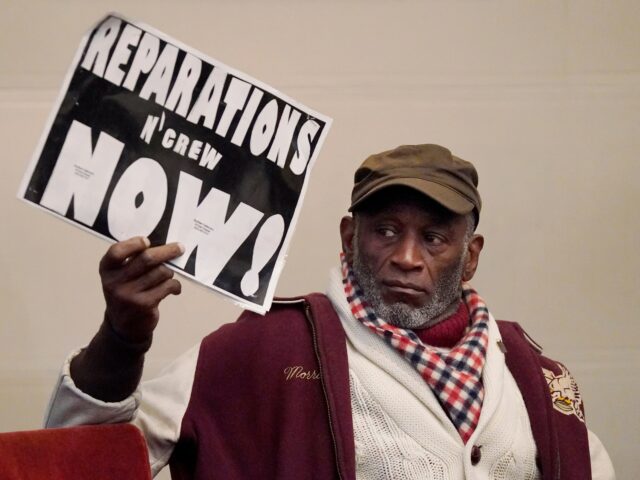The concept of the state delivering cash payments as reparations to the descendants of enslaved African Americans is opposed by California voters by a 2-to-1 margin, a poll released Sunday reveals.
This insight into public reaction to offers of cash settlements shows difficulties await state lawmakers when they begin to consider the idea already flagged for action next year.
The UC Berkeley Institute of Governmental Studies poll, co-sponsored by the Los Angeles Times, found some 59 percent of voters oppose cash payments compared with 28 percent who support the idea. The lack of support for cash reparations was resounding, with more than four in ten voters “strongly” opposed.
“It has a steep uphill climb, at least from the public’s point of view,” said Mark DiCamillo, director of the IGS poll. The Times report states:
Democratic Gov. Gavin Newsom and state lawmakers created California’s Reparations Task Force in 2020 with the goal of establishing a path to reparations that could serve as a model for the nation. After two years of deliberations, the task force sent a final report and recommendations this summer to the state Capitol, where Newsom and the Democratic-led Legislature will ultimately decide how the state should atone for slavery.
The group suggested providing cash payments to all descendants based on health disparities, mass incarceration and over-policing and housing discrimination that have adversely affected Black residents compared with white Californians.
The poll results now pressure Democrats to deliver on something they have worked towards for years even as it is opposed by voters in such strong measure.
The Times report notes some of the amounts already being considered.
It states “for health disparities, the task force recommends $13,619 for each year of residency in California — a figure that was derived by comparing life expectancy between Black non-Hispanic and white non-Hispanic Californians.
“To compensate for mass incarceration and over-policing, the task force recommends eligible descendants receive $2,352 for each year of residency in California during the war on drugs from 1971 to 2020.
“Compensation for housing discrimination totaled $3,378 for each year between 1933 and 1977 that a descendant resided in California.”

File/Los Angeles long-time resident, Walter Foster, age 80, holds up a sign as the Reparations Task Force meets to hear public input on reparations at the California Science Center in Los Angeles on Sept. 22, 2022. (Carolyn Cole / Los Angeles Times via Getty Images)

File/Pete White, Founder and Co-Director of Los Angeles Community Action Network (LA CAN) addresses a press conference with BLM-LA members and community members demanding full reparations. (Al Seib / Los Angeles Times via Getty Images).
In the Berkeley poll, when voters who oppose reparations were asked why, the two main reasons cited most often were based on the concept of “fairness.”
They responded that “it’s unfair to ask today’s taxpayers to pay for wrongs committed in the past,” as picked by 60 percent of voters, and “it’s not fair to single out one group for reparations when other racial and religious groups have been wronged in the past,” chosen by 53 percent.
Only 19 percent said their reason was he proposal would cost the state too much, suggesting money alone is not the main objection.
RELATED: Herschel Walker on Reparations — ‘We Use Black Power to Create White Guilt’
Video Source: House Judiciary / YouTubeAmong Democrats, 43 percent favored and 41 percent opposed cash reparations. Republicans were strongly against the proposal at 90 percent with only five percent in favor. Independents were 65 percent opposed and 22 percent in favor.
The Berkeley Institute of Governmental Studies poll surveyed 6,030 registered California voters online in English and Spanish from Aug. 24-29.

COMMENTS
Please let us know if you're having issues with commenting.